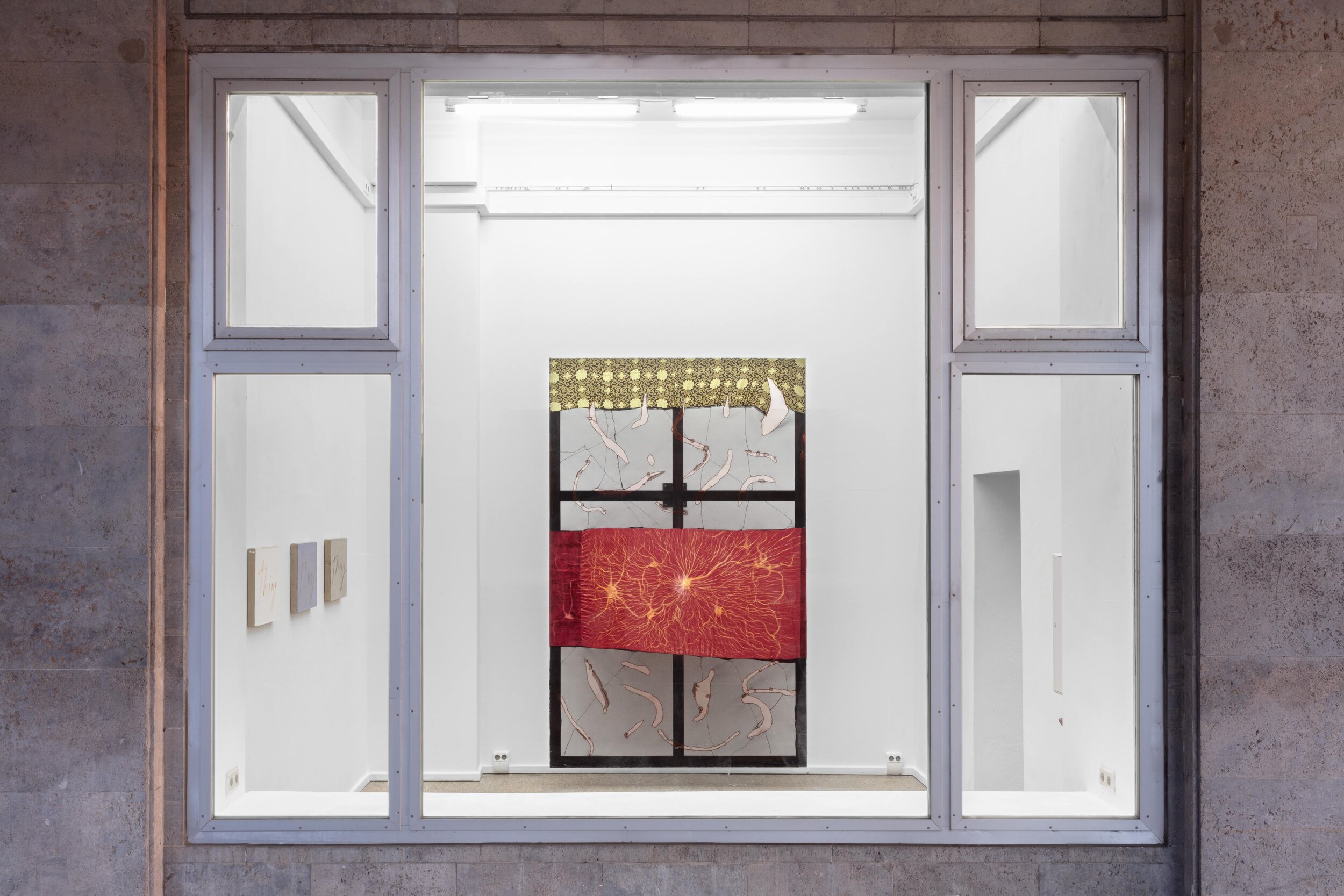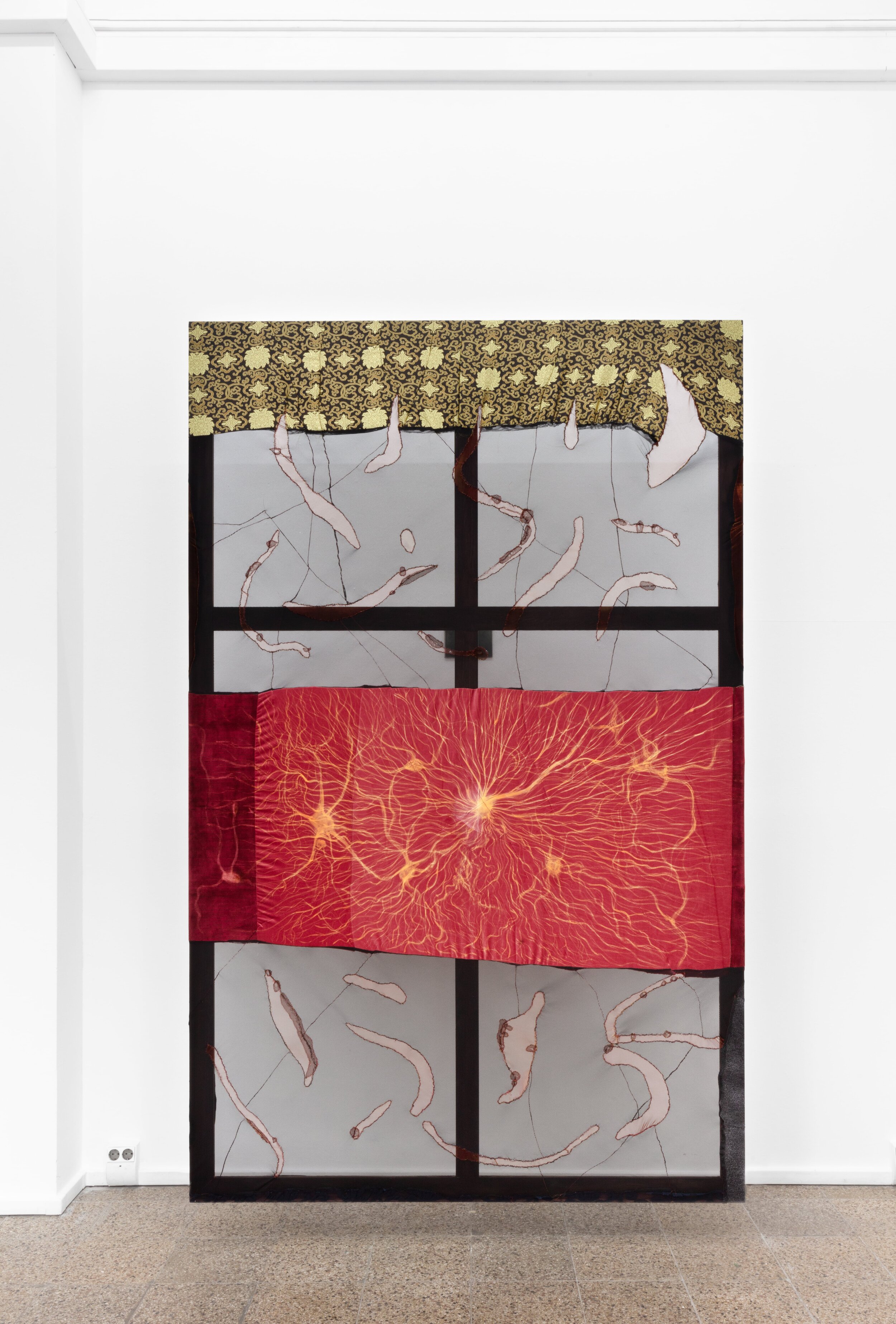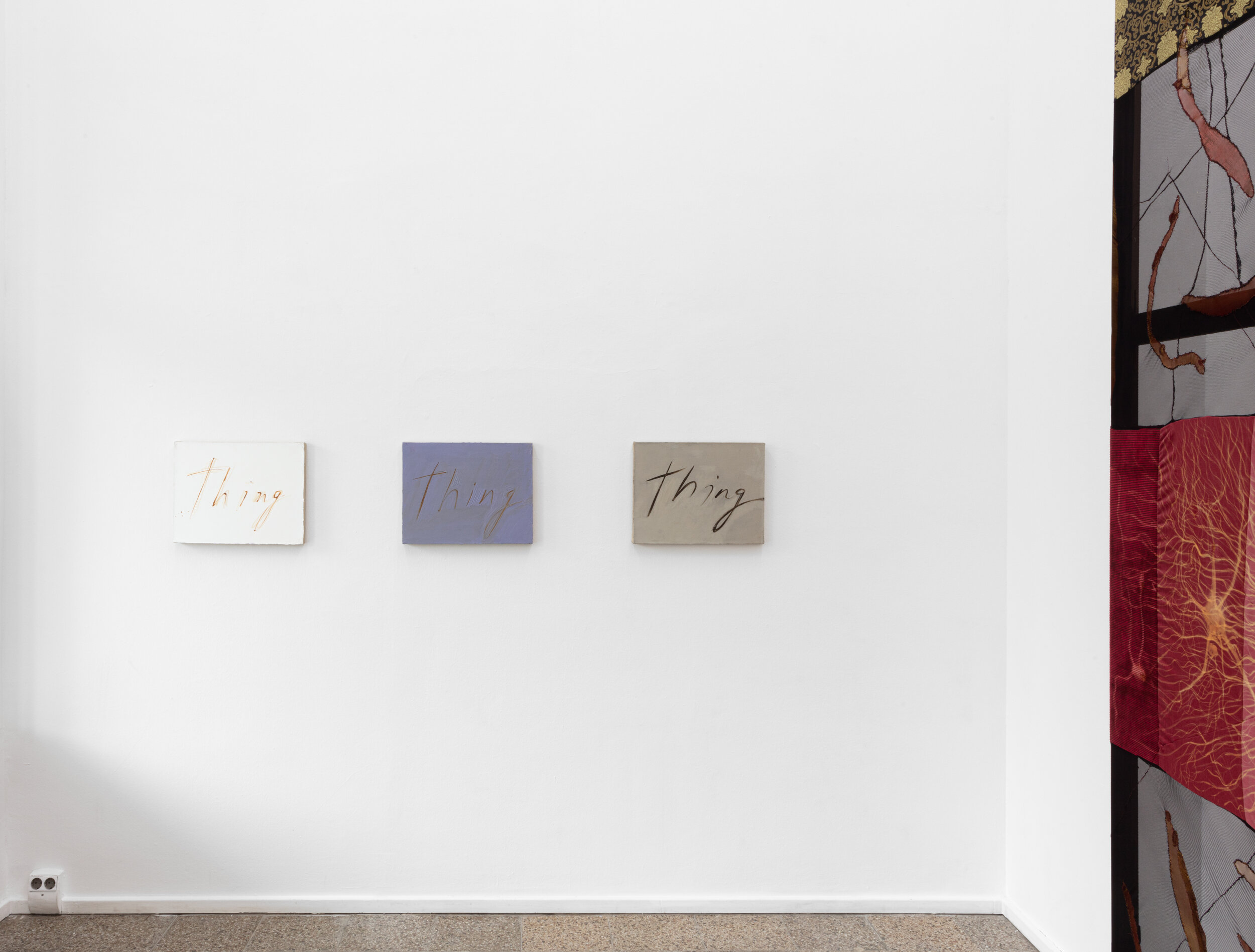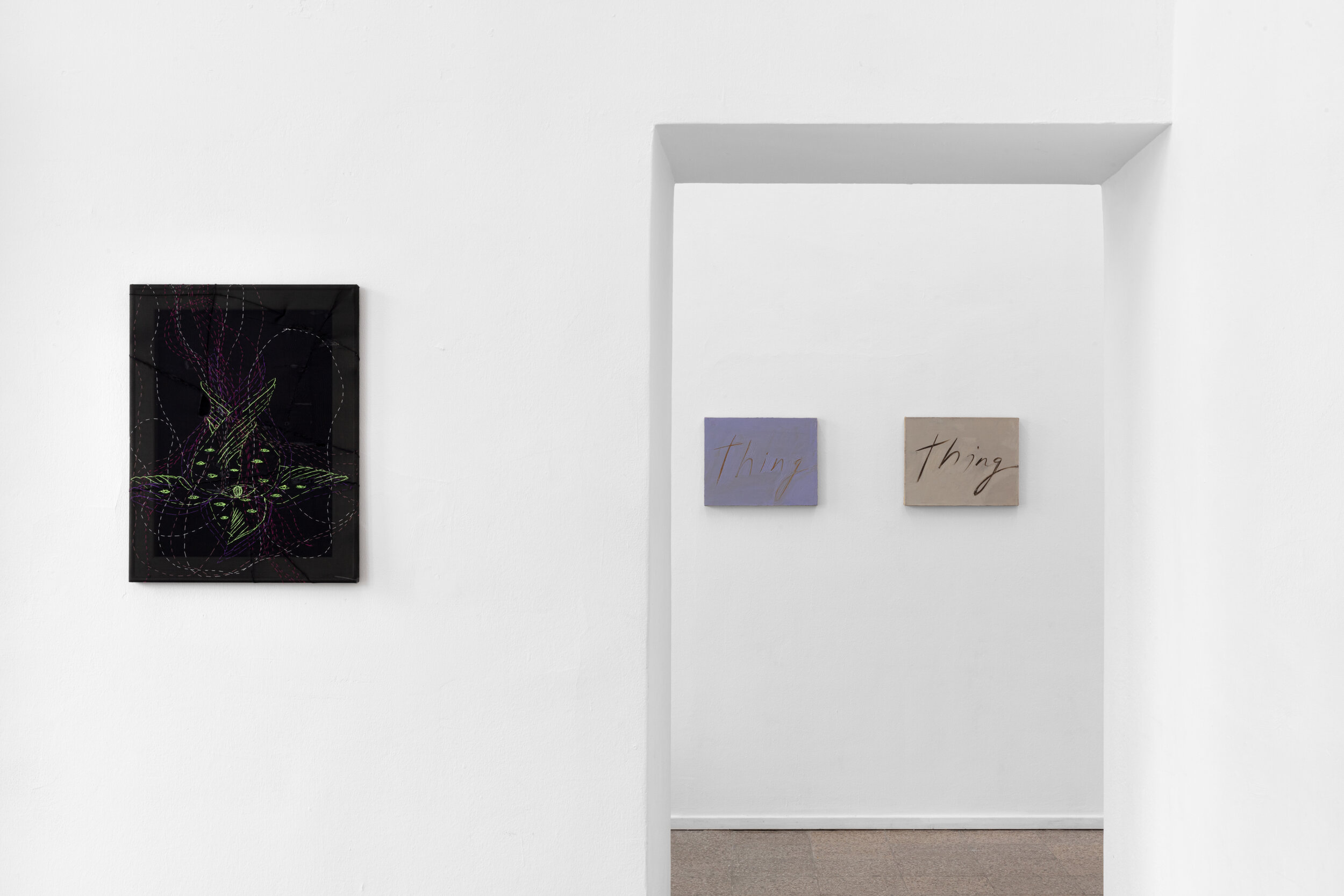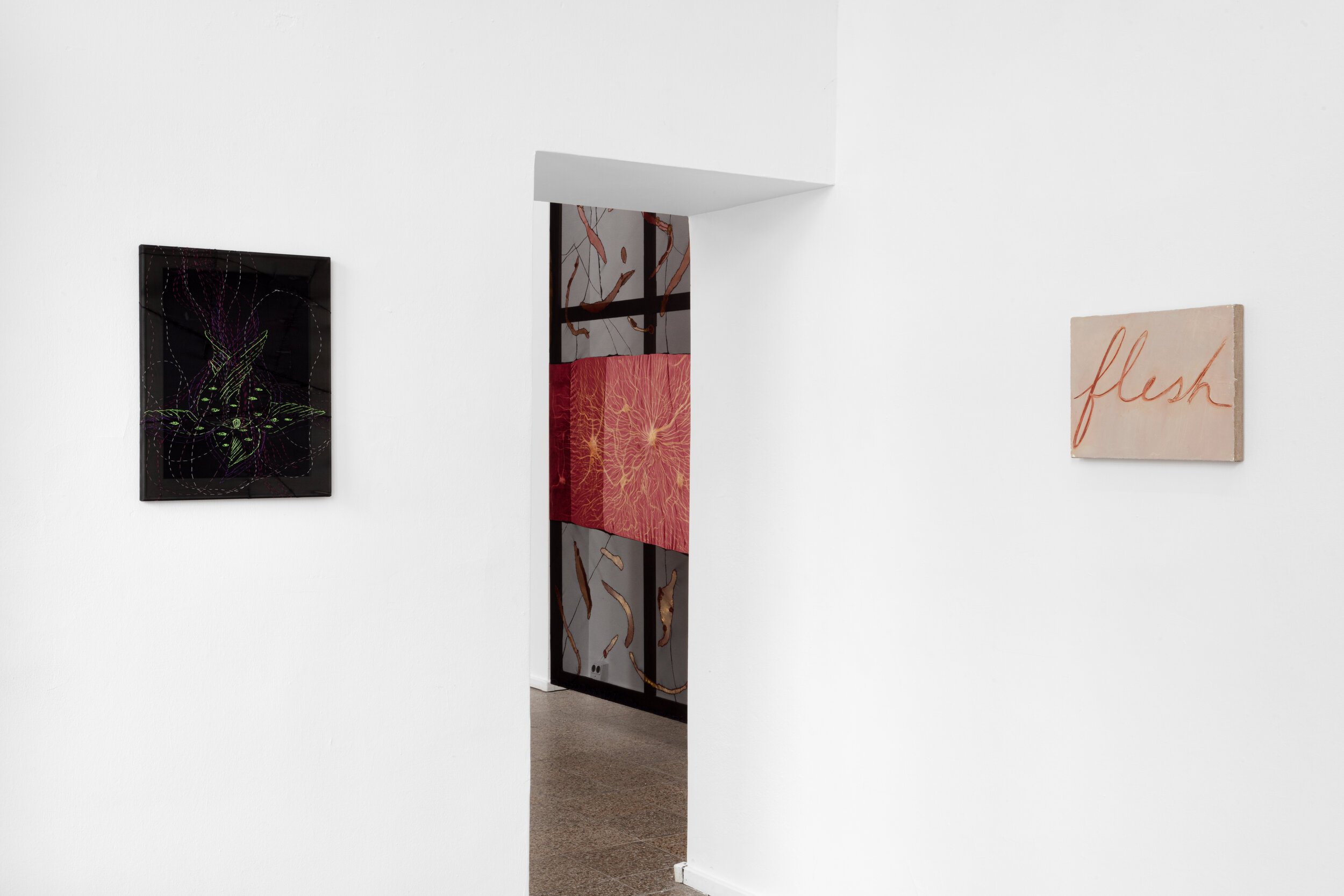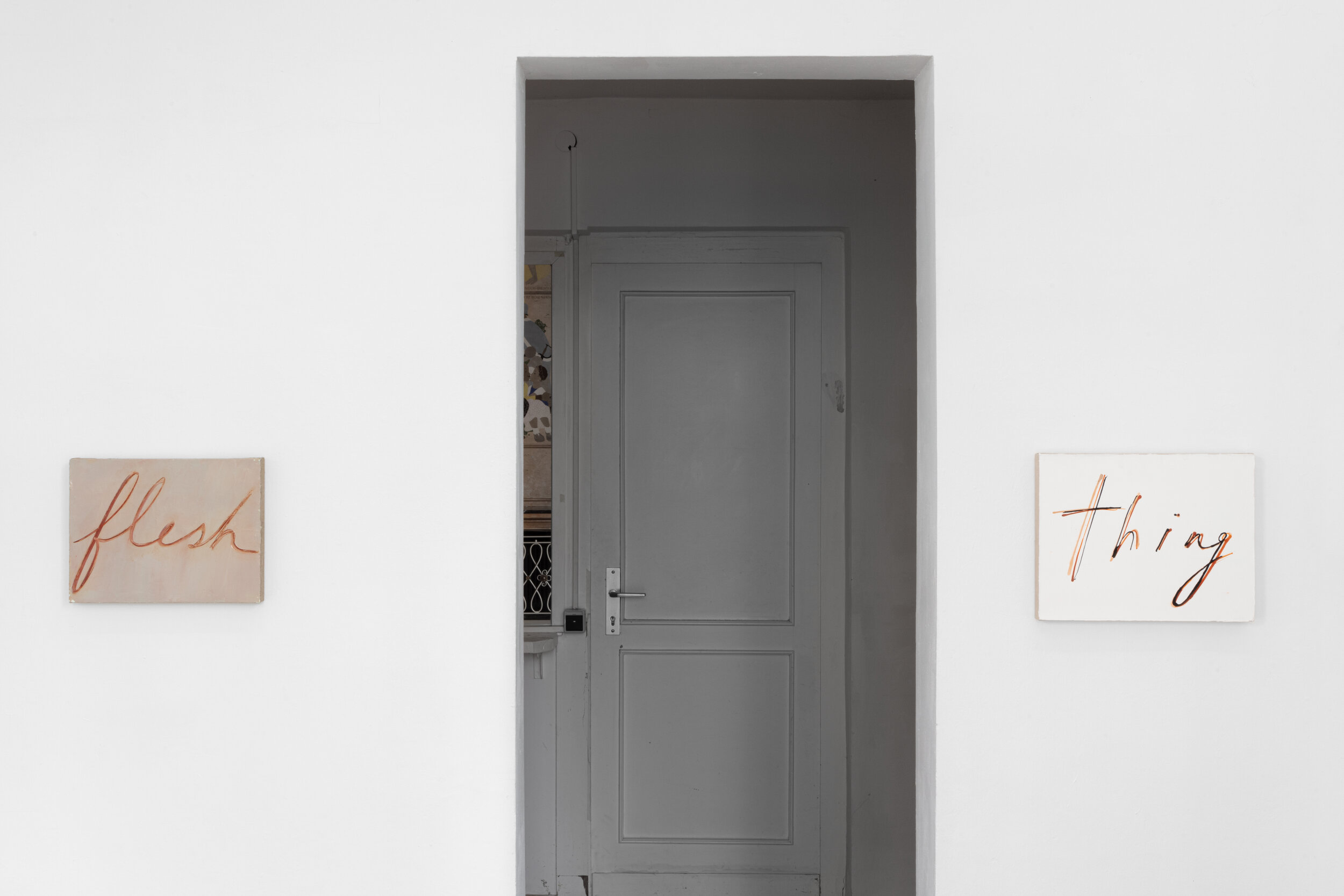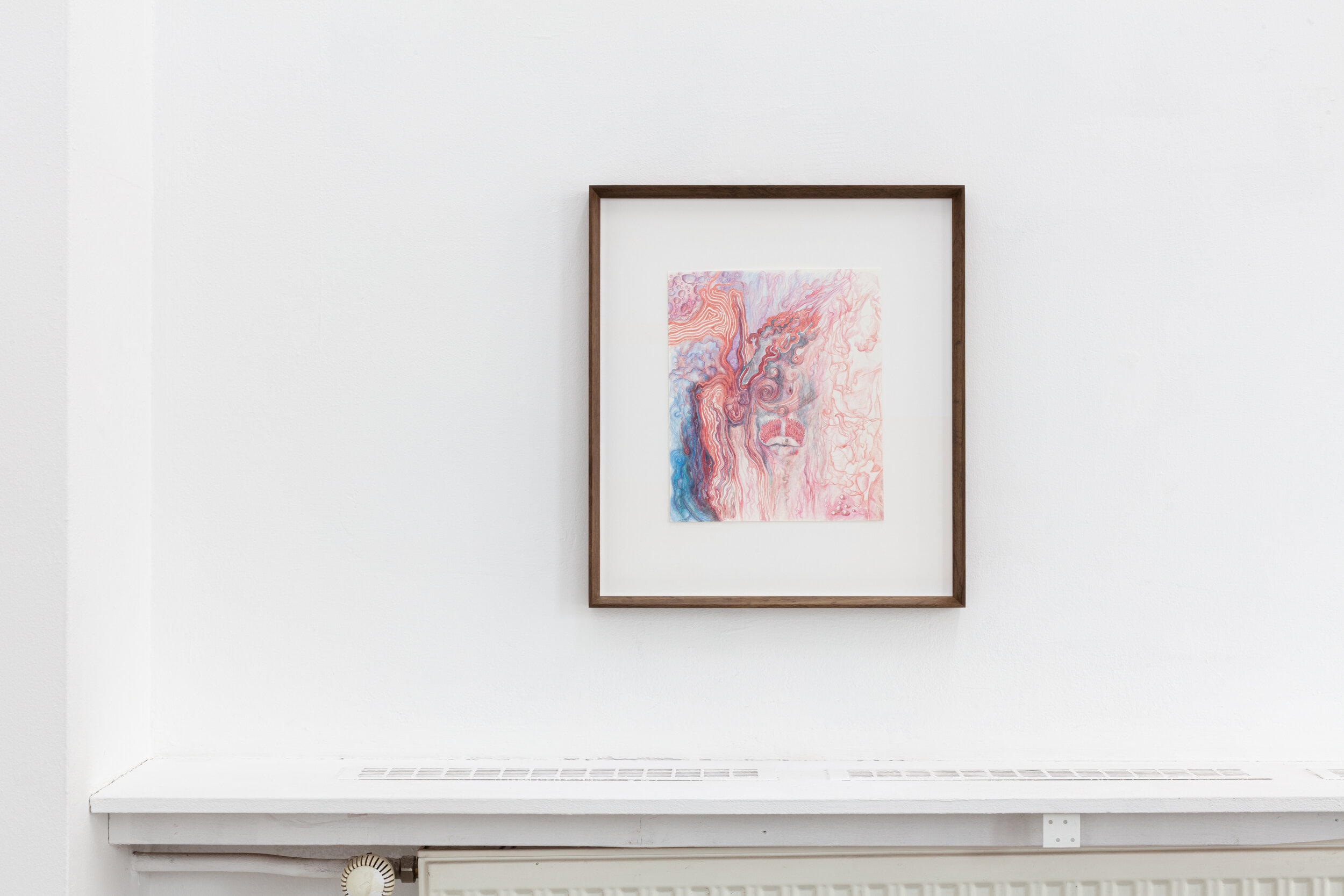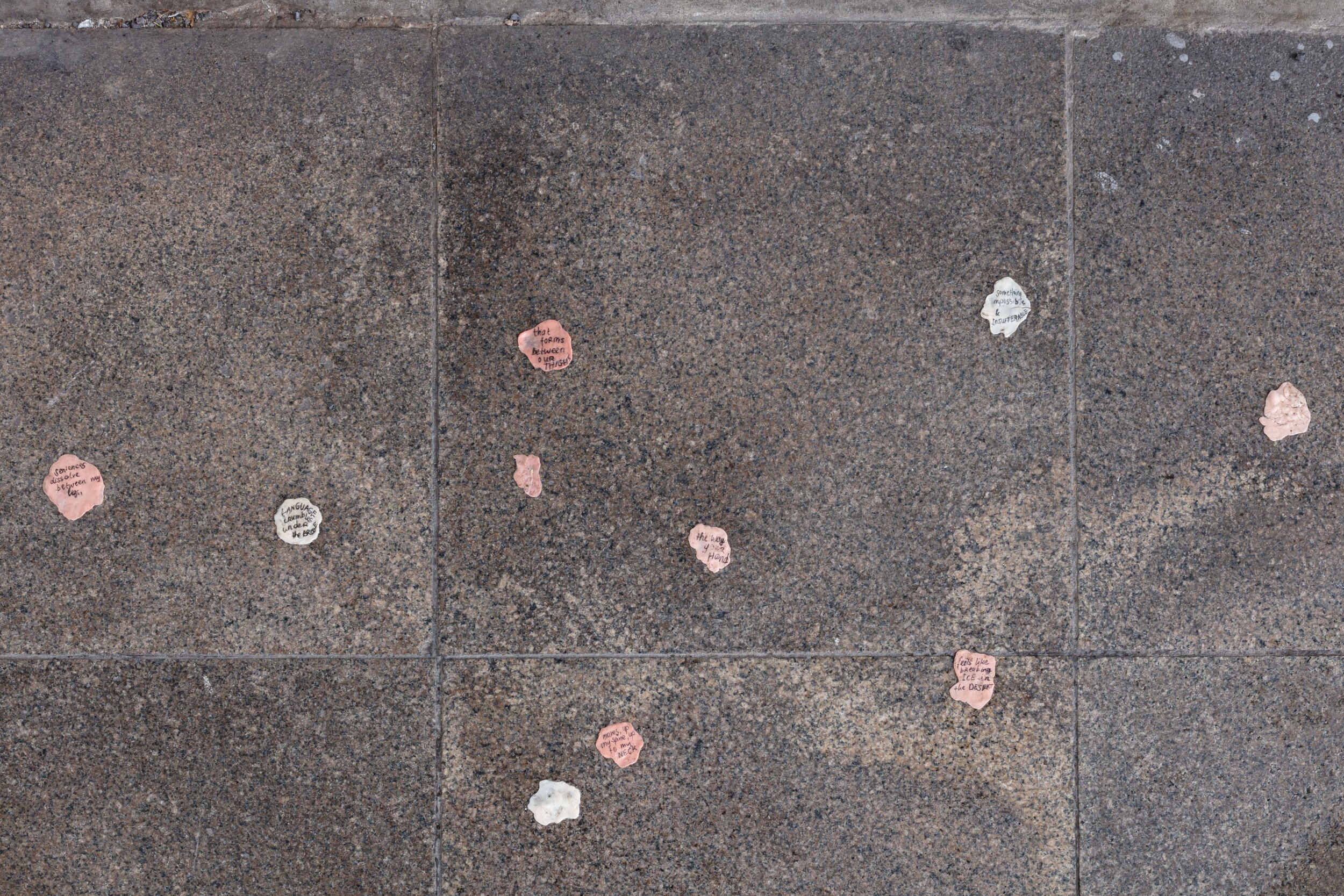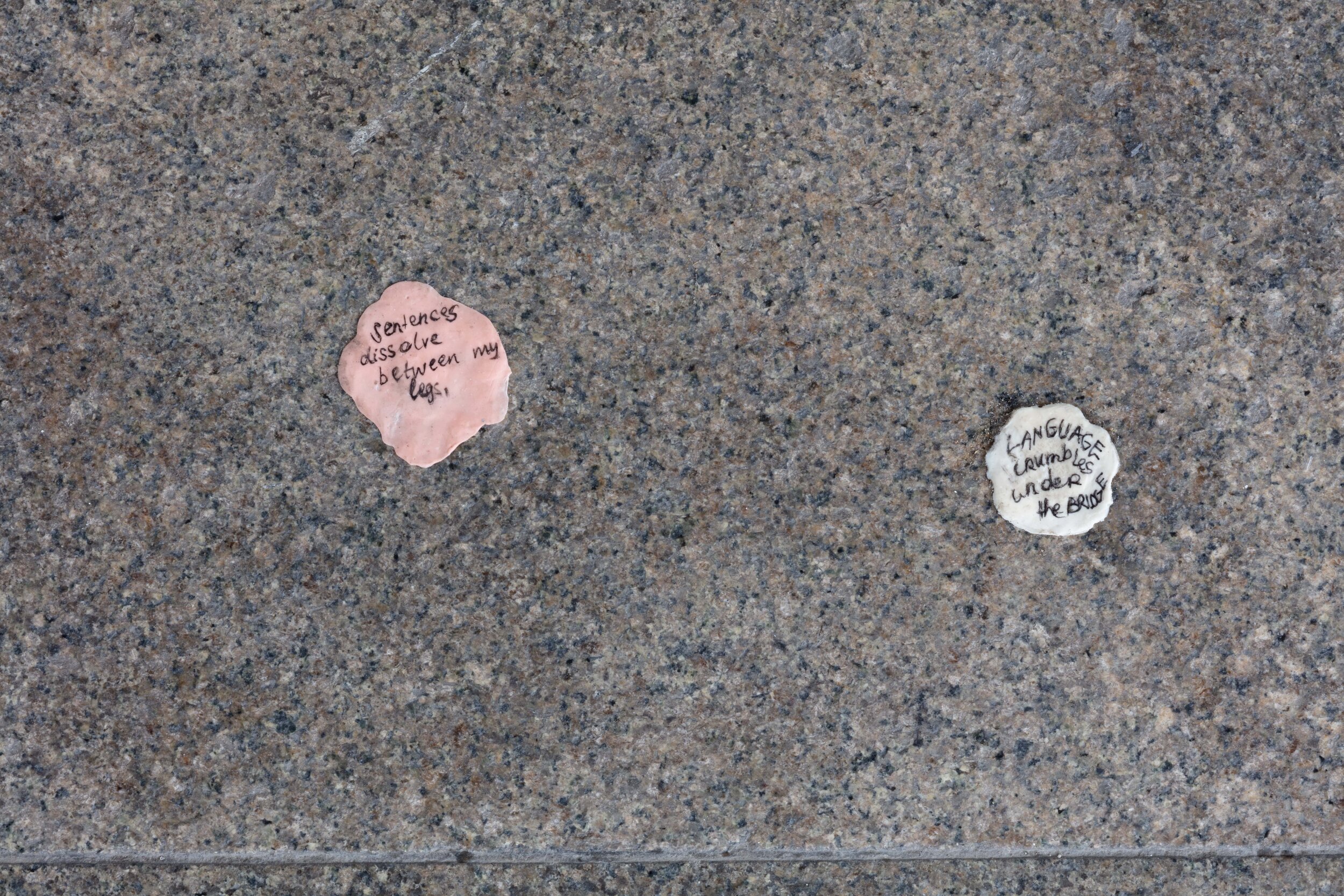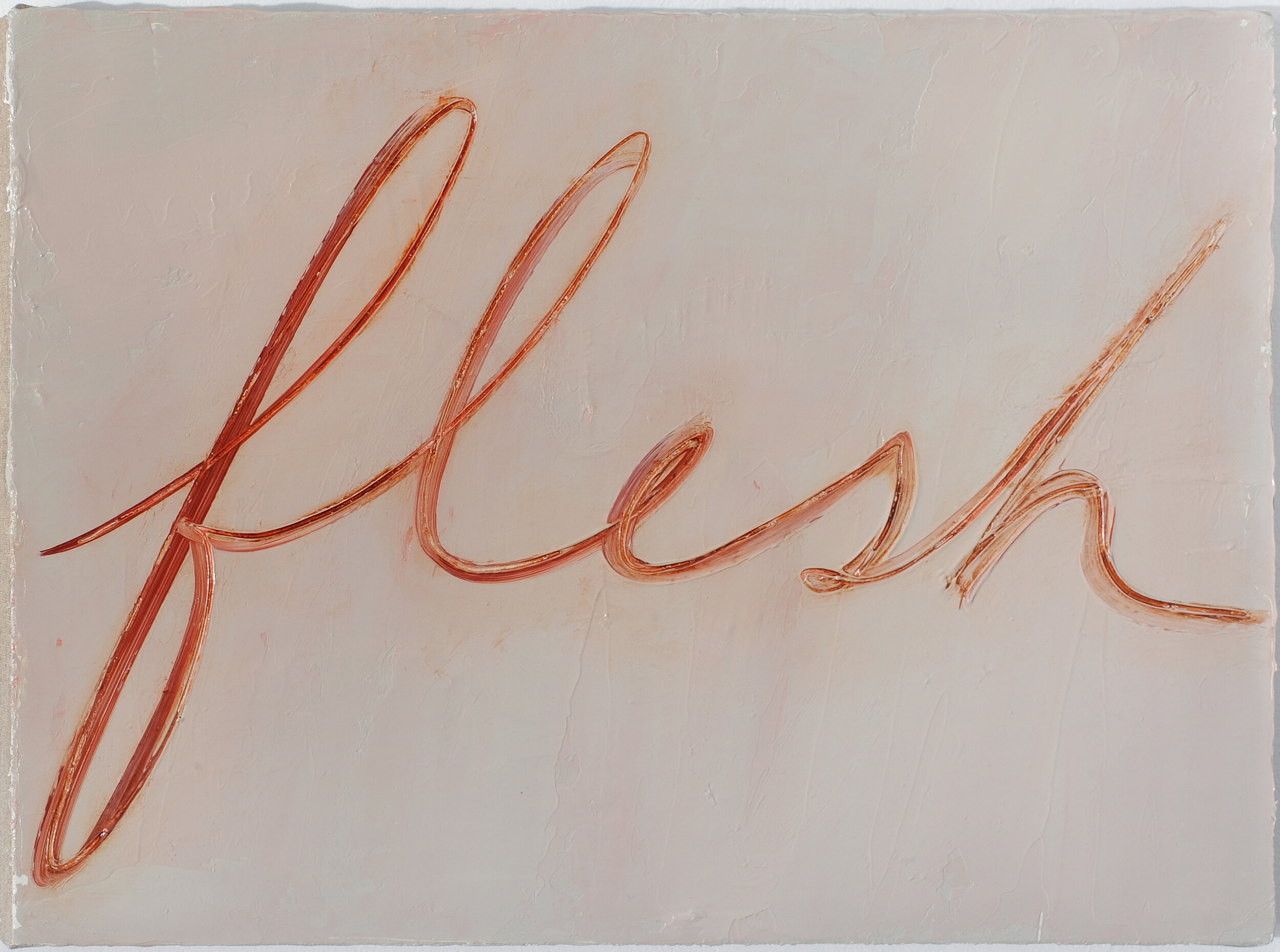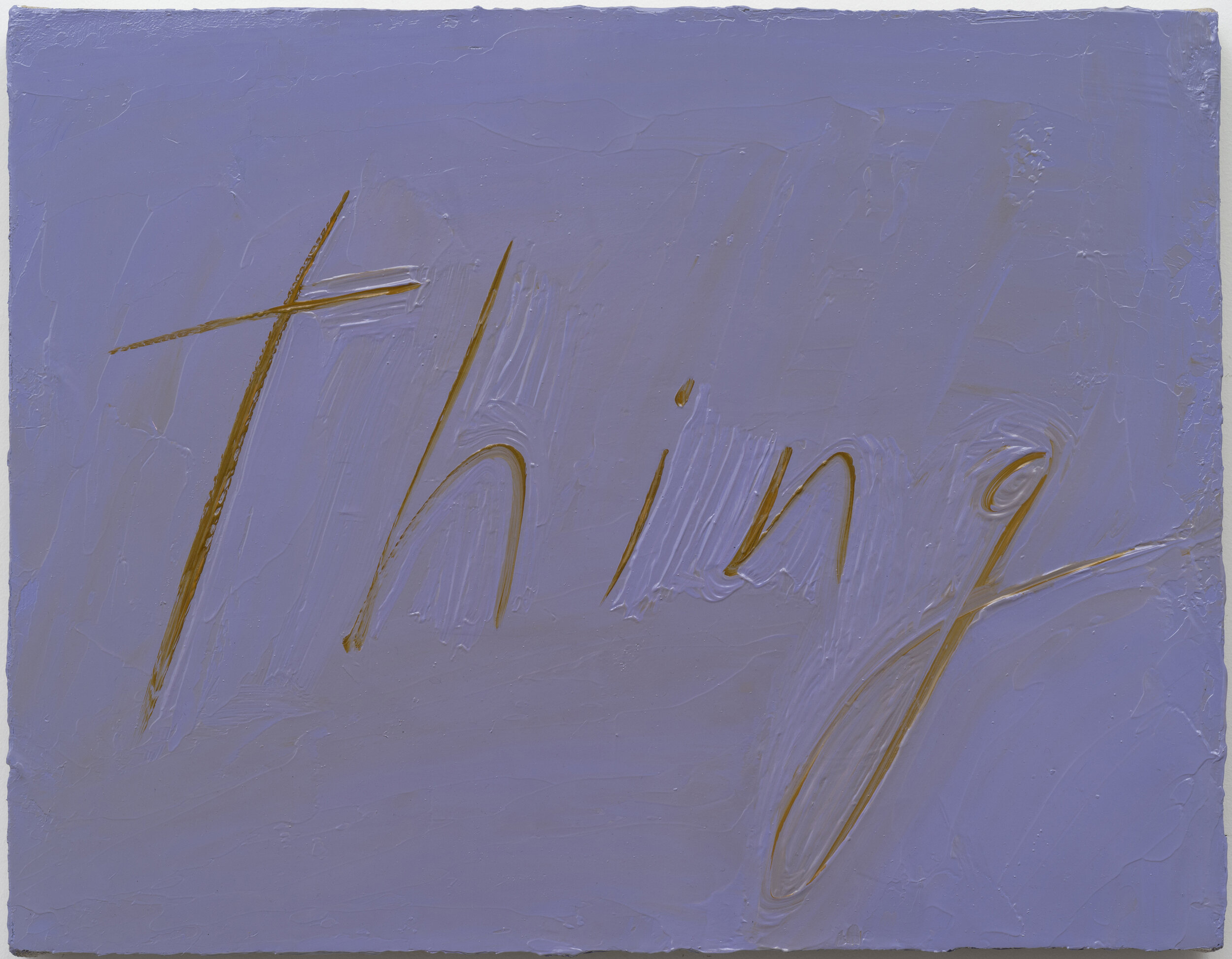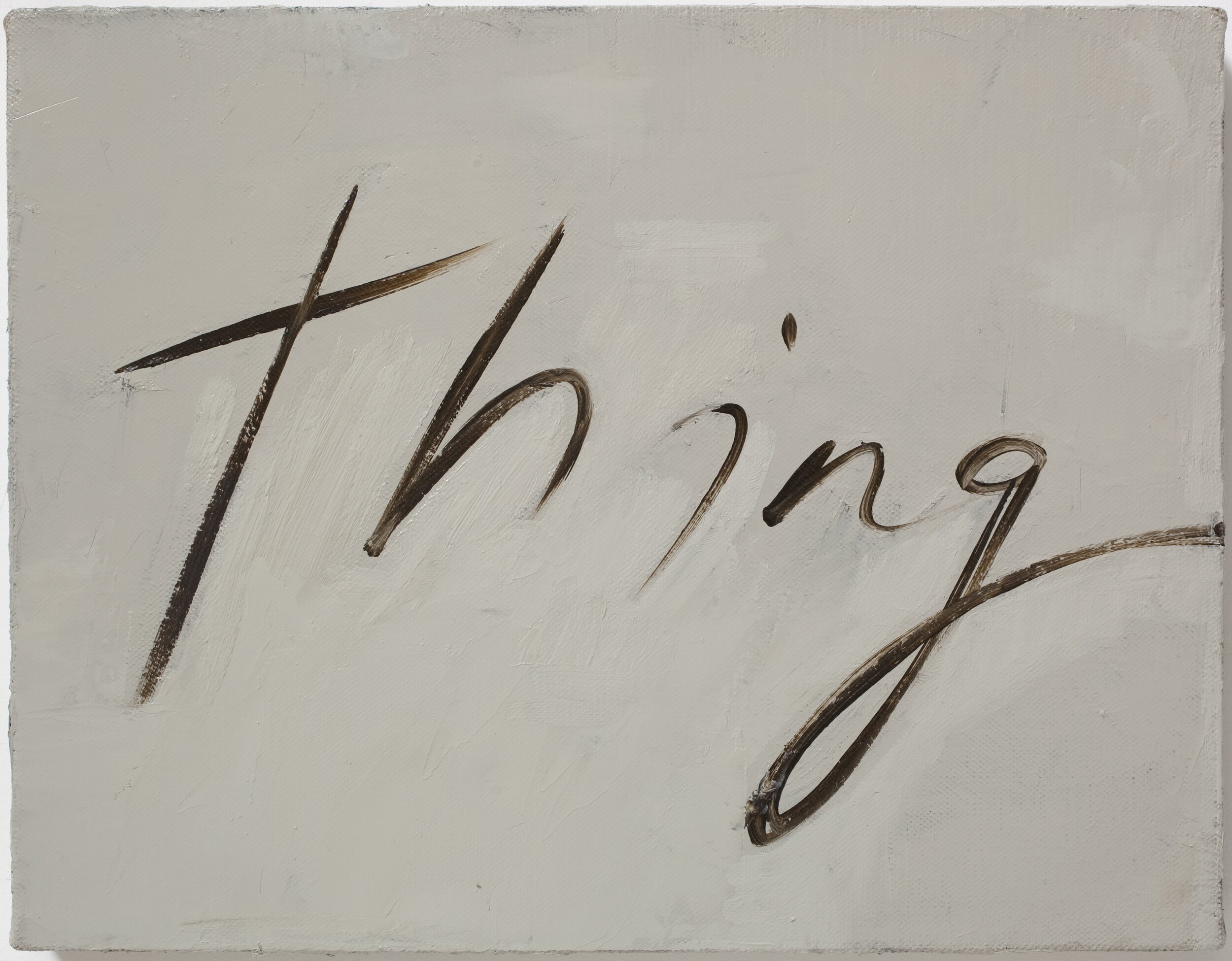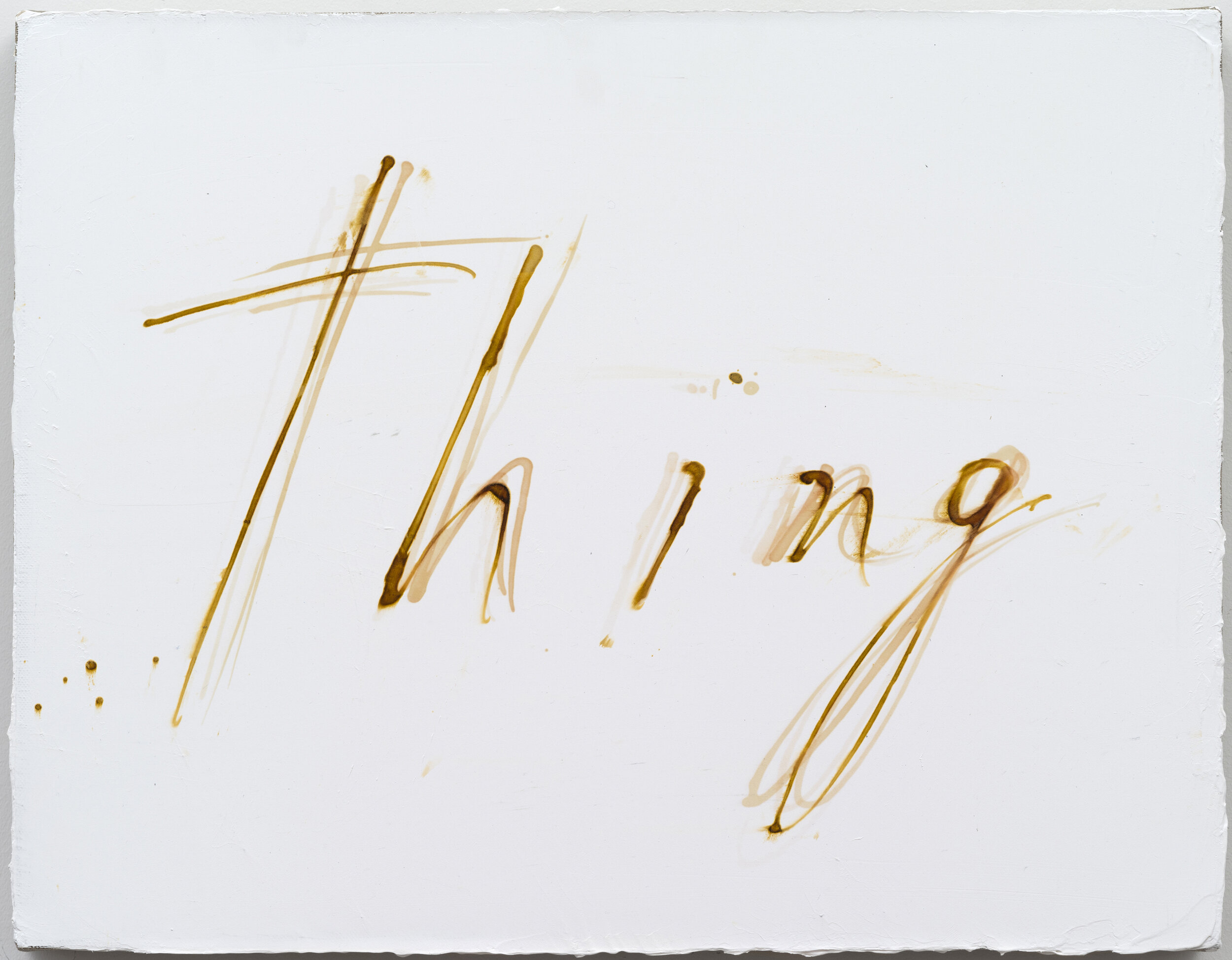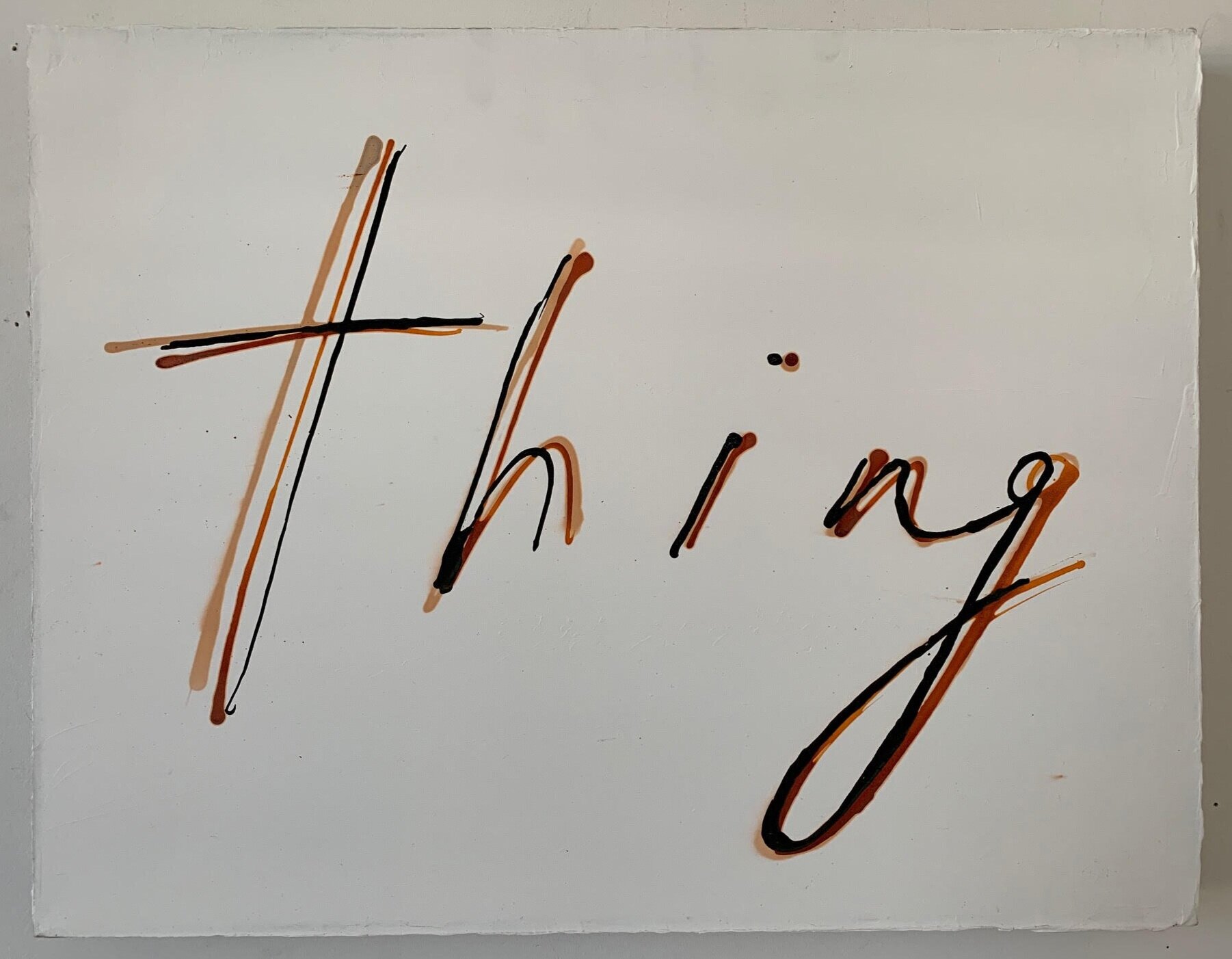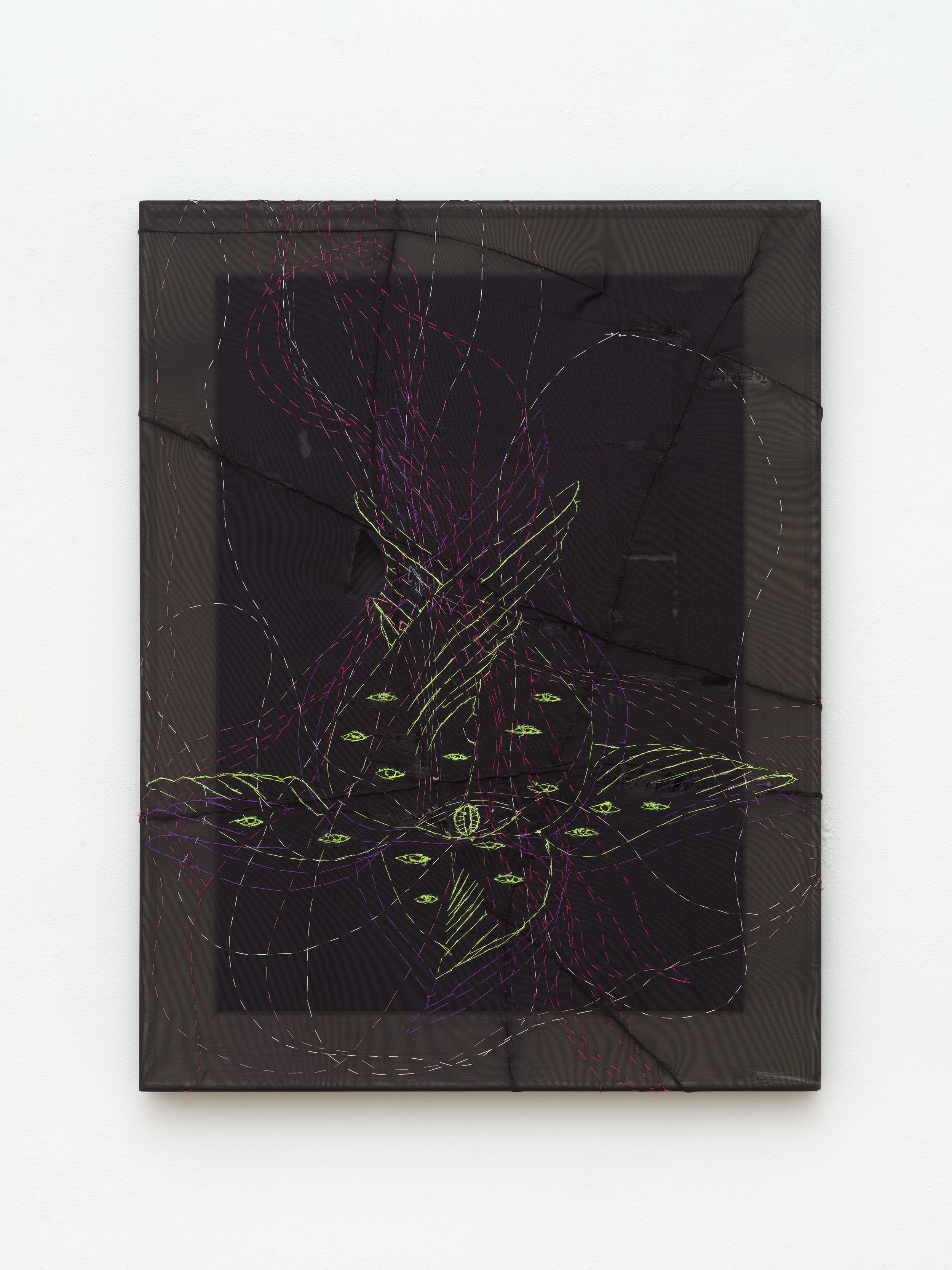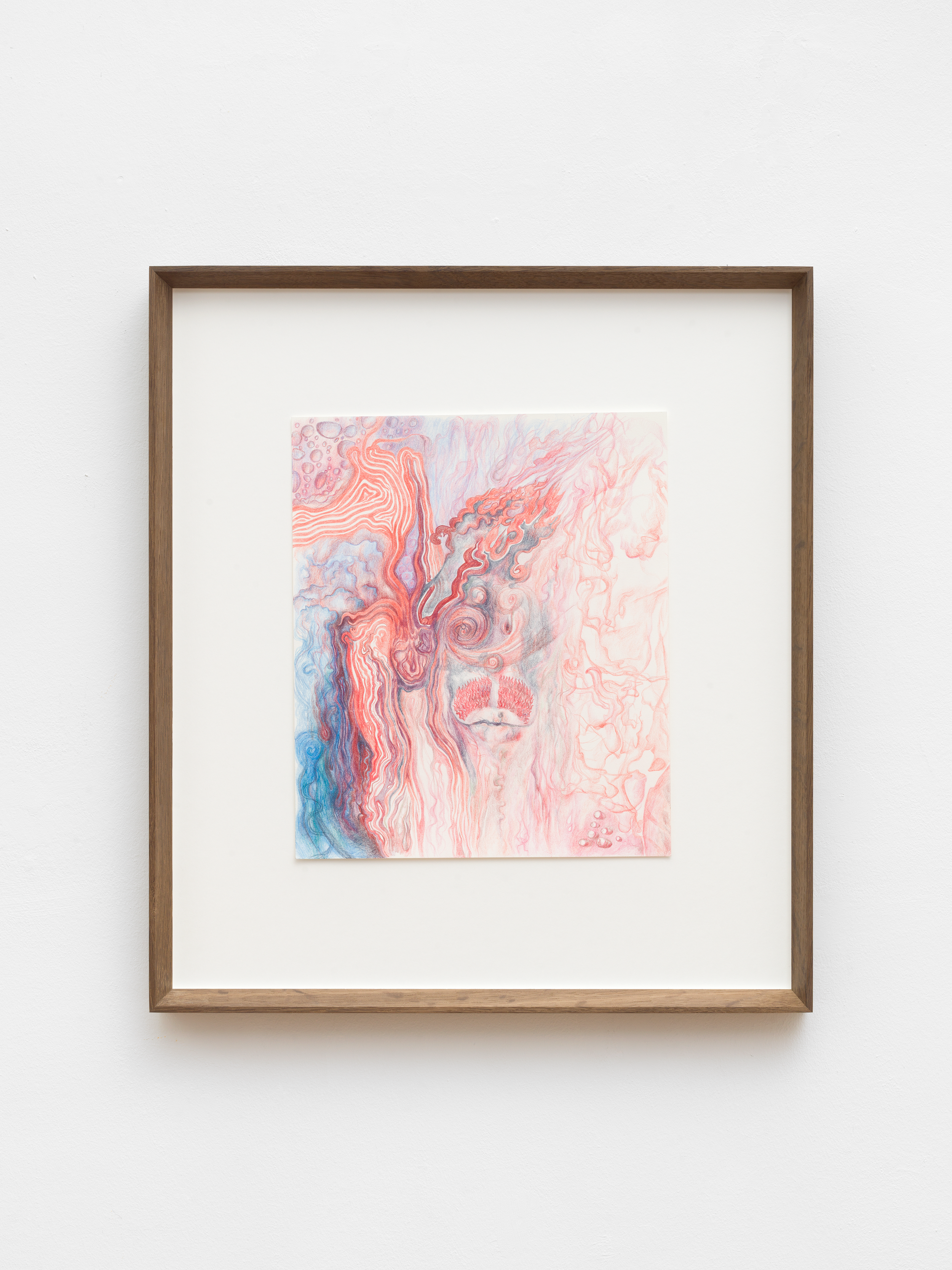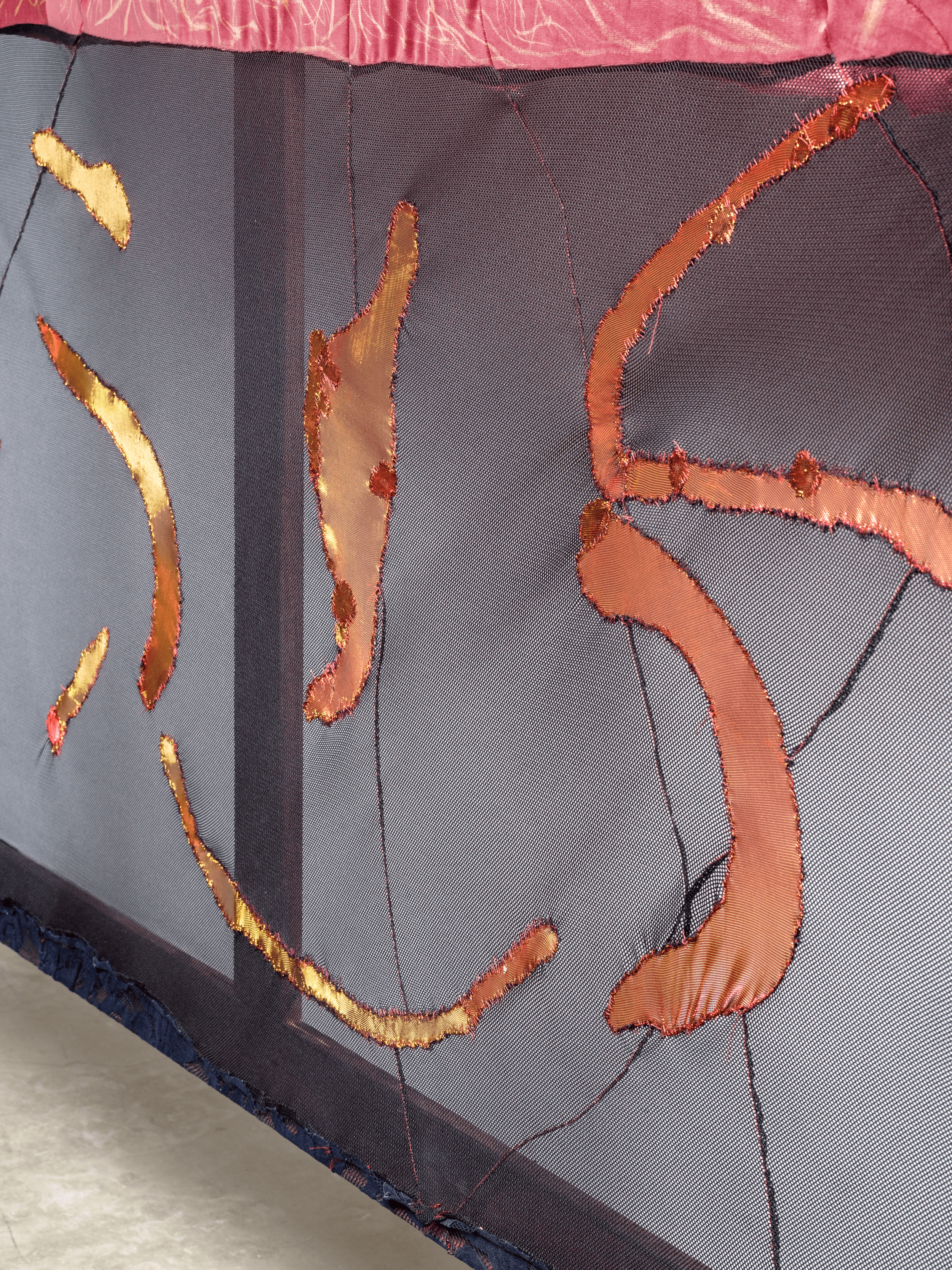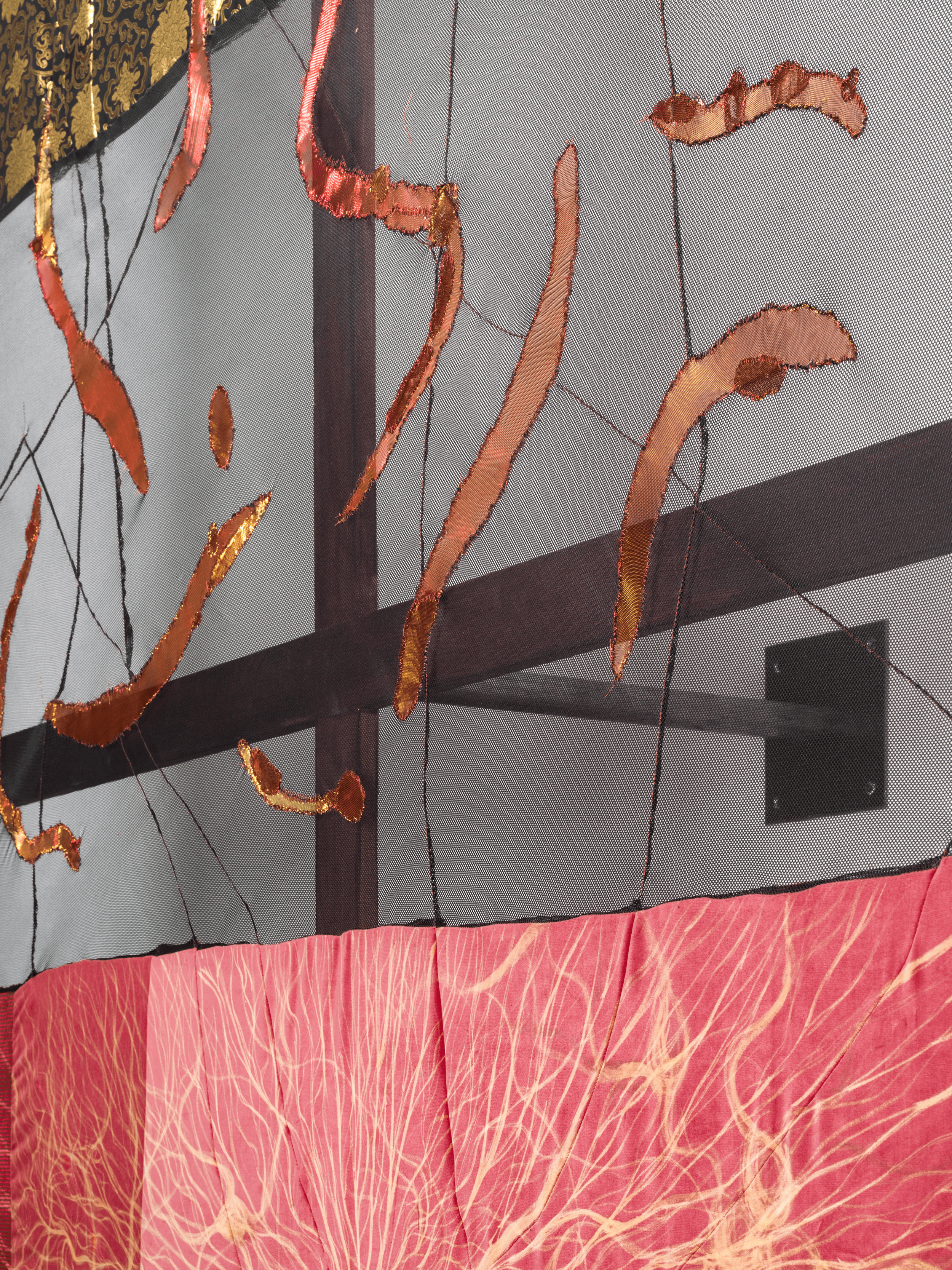may
PRESS RELEASE, download PDF
Blood of a Poet
Leda Bourgogne and Mira Schor
curated by Camila McHugh
May 7 - June 26, 2021
Blood of a Poet brings together the work of Mira Schor (*1950, New York) and Leda Bourgogne (*1989, Vienna) in Schor’s first exhibition in Germany. Mira Schor’s work homes in on the gap between visual and verbal language, driven by the question of what collapsing this chasm might look like or mean. Infused by a feminist and political consciousness, language has figured as a primary subject of Schor’s practice over the past five decades. Five single-word canvases from her Language as Image series (ongoing since 1990) are on view at June.
Stitched lines segment and structure Leda Bourgogne’s paintings: a compositional strategy, but also a concern with the notion of a suture—that is, the closing of a wound. Bourgogne positions the surface of a painting as a kind of skin, forgoing canvas for textiles like gauze, velvet or mesh, which she cuts out and pieces back together. These are materials that could have been worn: draped over a shoulder, hugging a hip bone. Her works are at once delicate and commanding, something like the fragile resilience of the human body. In Blaze, 2020, which extends out from the wall on hefty steel cantilevers, bleached lines fire like neurons across a gauze center band surrounded by oblong, mauve-colored shapes that are patchworked along the transparent, black mesh. These forms echo the eyes stitched in bright yellow sewing thread atop a crest of wings in Seraphim, 2020, which took the many-eyed, fiery Seraphim angels as a starting point.
Both artists are also writers. Schor is widely known for her 1997 collection of essays, Wet: On Painting, Feminism, and Art Culture and more recently for her annotations of covers of the New York Times in paint and ink, a project initiated during the term of the 45th president of the United States. Schor’s painting practice has always held written language close: the influence of the 1980s heyday of semiotics and its forebearers like Apollinaire and Mallarme is evident. Schor also co-edited the art criticism journal and editorial project M/E/A/N/I/N/G, which was influenced by the notion that language dictates meaning, not vice versa.
The exhibition Blood of a Poet borrows its title from Jean Cocteau’s avant-garde film “Le Sang D'un Poète” (1930), incidentally a favorite of both artists. Leda Bourgogne’s poetry articulates her paintings’ emotional grain, as both her visual and written practices reflect on the likes of desire, dreams and spiritual realms. Sentences lifted from some of her poems are scrawled on chewing gum stuck outside the gallery's entrance in Gum, 2021. Her drawings—a practice she began more dedicatedly during the first lockdown last year—form a bridge between the two via the immediacy of finely-rendered colored pencil. Who by fire, 2020 conjures a meditative state as its line drifts from watery forms to biomorphic canals to plumes of smoke.
Mira Schor takes on the body in Flesh, 2015, embedding the word with the fleshy materiality of its meaning. She painted Flesh repeatedly (a response, in part, to poet Johanna Drucker’s 1989 book The Word Made Flesh) and continued with other words, like Thing. The four Thing paintings on view at June—Thing, 2011; Purple Thing, NY #12, 2014; Thing #8, 2014; Thing, 2017—attest to the persistence of this project, also underscoring the consistency of Schor’s script throughout the series. Counter to the prevalence of technical reproducibility and appropriation in artmaking at the end of the 20th century, Schor experimented with handmade mechanical reproduction of her own handwriting by copying, repeating and enlarging it, sometimes using tracing paper or a Xerox machine.
A final thought: Both artists, across two generations and between New York and Berlin, avow a resolutely feminist dimension to their practices. Their strikingly different work and divergent concerns remind us that this stance is neither limiting nor prescriptive, but rather generative and evolving, which the ricochets across their work here might reveal.
